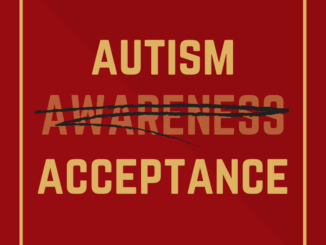This post has an audio and video recorded version for those who prefer to learn by hearing rather than by reading. Scroll to the bottom for the video of me reading it.
Someone recently asked me, “I want my child to know that they can feel their full range of emotions without any emotion being ‘bad’ or ‘wrong’. But how do I do that without letting them whine about every little thing?”
My instinctual response is that there’s a problem inherent in the question. I don’t know how anyone can “let” or “not let” anyone else do anything that is simply verbal, because short of physically covering another human being’s mouth, there’s actually no way to control what someone says, or what tone of voice they say it in.
(I could go on a rabbit trail here about people who communicate by some means other than speaking with their mouth, and the ways in which they are routinely silenced—like taking away a child’s tablet AAC—but that’s a topic I’ve covered in the past and I’m sure I’ll cover again in the future, so avoiding the tangent for now…)
When parents talk about “letting” or “not letting” their child say something or do something verbal that they don’t like (all across the age span — e.g. curse, say potty words, shriek, cry, whine, scream) then they’re usually referring to trying to control or coerce or convince the child in some way, because it’s not like it’s a limit or a boundary that you can physically hold. It’s not like “I won’t let my child get into the cabinet full of cleaning sprays” where you can put a lock on the cabinet or block the child from going in the cabinet or distract the child with a spray bottle full of harmless water, which would all be “not letting” them do it and finding another solution.
This might sound like me being needlessly pedantic, and I promise I’m not trying to.
I’m a super sound sensitive person. I struggled *greatly* for the first year of my child’s life — when he was a literal baby! — with feeling like I ought to be able to control or stop him from experimenting with shrieking, squealing, etc in tones that bothered me. Nobody told me that 4 month olds will just make the same pterodactyl shriek for hours on end just for fun while they play because they’re experimenting with their voice!
Once I realized that I couldn’t control what other people (even my kids) do or don’t say, it freed me to figure out what about the situation I could change for myself for my auditory sensitivity. Throughout the years I’ve managed it with earplugs and headphones playing music and some speaker in the room playing music and getting outside as much as possible, at various times.
Anytime you’re asking “how do I allow uncomfortable feelings without allowing my child to express them in a way that is most effective in conveying to me that they’re uncomfortable?” you’re almost defeating your own purpose. I’d bet that it’s likely that your child knows on some level that this is the way that they can most effectively convey to you that they’re uncomfortable (i.e., by also making you uncomfortable). If they want you to truly understand how they’re feeling, if they want you to share in their emotion with them — because that feels like empathy — then why wouldn’t they go for that? Doesn’t that simply make the most sense?
I know there have been times in my life where my husband and I went through something absolutely horrible and we were both reacting to it differently and I remember looking at him and desperately wishing that he would be “as sad as” me…not that I wanted to wish sadness and pain upon him, but that I wanted to feel like I was understood by the one person I felt could understand me. His reaction looked so different from mine on the outside that it made me feel alone and wish that he would feel the same emotions as me.
So if your child is feeling uncomfortable and reacting to it and her reaction makes you feel uncomfortable, isn’t she succeeding in pursuing empathy, in a way?
But you don’t have to get utterly mired down in her emotions in order to visit where she’s at with empathy.
I don’t have to have my heart broken every time my kid gets annoyed that her brother looked out her window.
I can also, with my adult brain, recognize the bigger factors at play: that it’s hard to have a sibling so close to your age, it’s sometimes boring to be in a car for half an hour, it can be tough to share space with the same person for hours on end, it’s developmentally appropriate to feel ownership over everything at her age, and the confluence of all those things means she doesn’t want him to look out her window, and it’s frustrating to not actually have the power to stop that from happening, so…she’s whining.
Is it annoying? Yeah, sometimes. And I try to keep all those other factors in play if I say “yeah, babe, I know it’s frustrating you that he’s looking out your window. I hear you.” And also, I’m not going to stop the car or somehow enact Window-Looking Rules because that would be physically impossible.
That’s what it means, sometimes, to recognize that we can’t be the ones responsible for making sure our kid never feels uncomfortable emotions. Partly because that’s just part of the human experience. Partly because we might need to be able to confidently make adult decisions and let our kids feel how they feel. And partly because there’s just sometimes things we literally can’t fix. I can’t actually do anything to alleviate that uncomfortable feeling for her. I can just reach out and try to make her feel seen. She can learn through practice one more instance of how to cope with the feelings it makes her feel. And we all go on about our lives.



